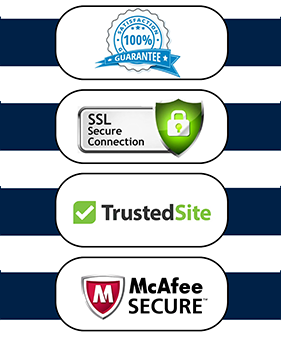
CFA Institute Sustainable-Investing Exam Dumps
- Exam Name: Sustainable Investing Certificate(CFA-SIC) Exam
- Certification Name: CFA Institute Sustainable Investing Certification
- Exam Code: Sustainable-Investing
- Total Questions Provided: 712
- Last Updated: Sep 7, 2025




Navigating the CFA Institute Sustainable-Investing Exam
Technological and Domain Expertise Required
The CFA Institute Sustainable-Investing Exam requires a deep understanding of sustainable investing principles, environmental, social, and governance (ESG) factors, and their integration into investment decision-making. Candidates must demonstrate proficiency in areas such as sustainability reporting and analysis, climate change risk assessment, impact investing, and responsible investing strategies. Strong analytical skills, financial modeling, and data interpretation capabilities are essential to excel in this exam. Additionally, a solid grasp of ethical and regulatory considerations in the sustainable investing landscape is crucial.
Career Benefits and Job Opportunities
Passing the CFA Institute Sustainable-Investing Exam can open up a world of opportunities for aspiring professionals. Successful candidates can expect to enhance their career prospects in the growing field of sustainable finance and investment management. Some of the potential job roles include Sustainable Investment Analyst, ESG Portfolio Manager, Impact Investment Specialist, Responsible Investment Advisor, and Sustainability Strategist. Employers in the financial services industry, asset management firms, and sustainability-focused organizations highly value the specialized knowledge and expertise demonstrated by holders of the CFA Institute Sustainable-Investing certification.
Exam Topics and Preparation Strategies
The CFA Institute Sustainable-Investing Exam covers a wide range of topics, including sustainability reporting and analysis, climate change risk assessment, impact investing, responsible investing strategies, and ethical considerations. To prepare effectively, candidates should thoroughly review the exam topics, practice with sample questions, and stay up-to-date with the latest developments in the sustainable investing landscape. Utilizing online resources, attending industry events, and seeking guidance from experienced professionals can also be valuable in the preparation process.
Embracing the Sustainable Future
The CFA Institute Sustainable-Investing Exam is a testament to the growing importance of sustainable investing in the financial industry. By demonstrating expertise in this field, successful candidates can position themselves as leaders in the transition towards a more sustainable and responsible investment ecosystem. Earning this certification can open doors to rewarding careers, where individuals can contribute to the development of a more sustainable and equitable future.

Currently there are no comments in this discussion, be the first to comment!